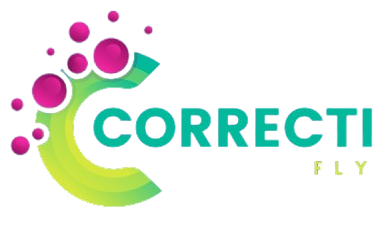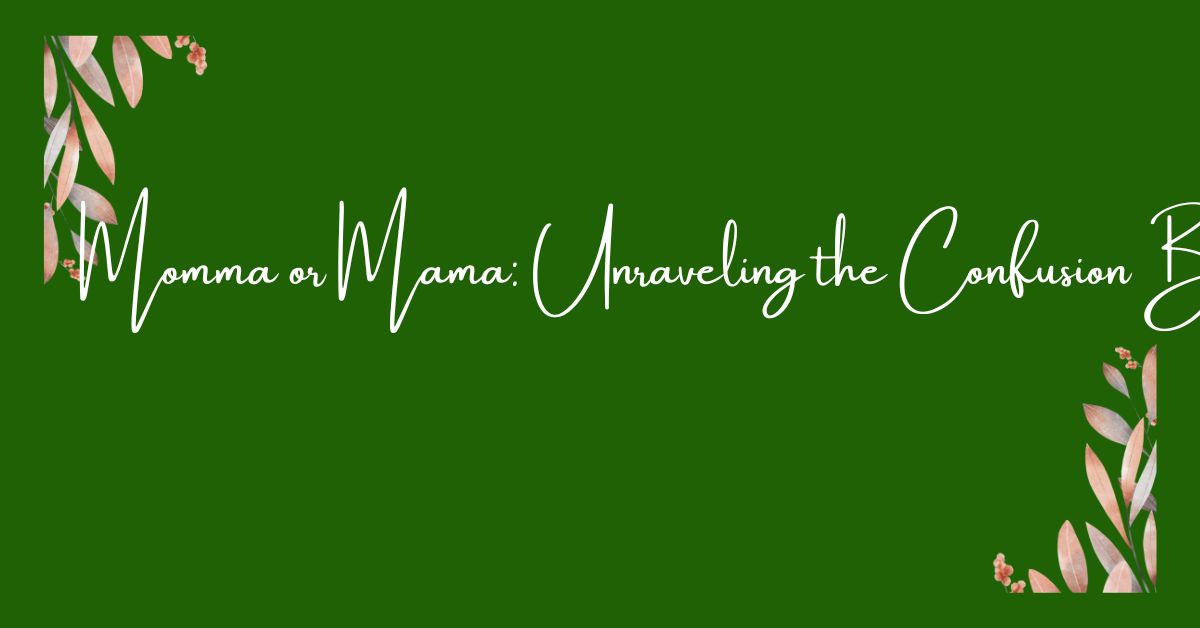Many of us lovingly call our mother “Momma” or “Mama,” but have you ever wondered if there’s a real difference between the two? These words might sound similar, yet depending on where you’re from and how they’re used, they can carry slightly different meanings and connotations. Exploring why people choose one term over the other can reveal fascinating insights into language, culture, and personal relationships.
In this article, we’ll delve into the origins of these words, how they are utilized in different cultures, and what they signify to various people, enriching your understanding of these beloved terms.
Origins of “Momma” and “Mama”
Both words—”Momma” and “Mama”—stem from a universal need for a simple, affectionate way to refer to one’s mother. The term “Mama” has ancient, global roots and is widely used across many languages. Its prevalence is a testament to the deep connection humans have with their mothers. This term appears in various forms in languages worldwide, indicating the universal bond between a mother and child.
Conversely, “Momma” is a more recent American English variation, particularly popular in Southern U.S. dialects. Its usage reflects specific regional influences and cultural significances within the context of family and community. Both terms illustrate how language evolves while maintaining emotional ties to familial love and affection.
Understanding Momma and Mama
Momma: Definition and Usage
The term “Momma” is an affectionate and informal way to refer to one’s mother, predominantly used in American English, especially in the Southern United States. It expresses warmth, familiarity, and a deep emotional connection to family. For many, “Momma” is regarded as more personal than “Mom” or “Mother,” reflecting close family bonds and a more intimate relationship.
Beyond its affectionate meaning, “Momma” can also carry a sense of authority, especially in phrases like “Momma knows best.” This expression showcases both the love and inherent respect for a mother’s wisdom and guidance. The term is versatile, used by both children and adults alike, retaining connections to childhood while conveying lifelong bonds.
In popular culture, “Momma” frequently appears in movies, songs, and literature, often evoking nostalgia or portraying traditional family values. While primarily used in the U.S., especially in the South, it remains a cherished term that embodies the importance of a mother’s role within the family structure, melding affection with cultural identity.
Mama: Definition and Usage
On the other hand, “Mama” is one of the most widely recognized terms for “mother” around the globe. Its simplicity makes it easy for babies to pronounce, which is why it appears in many languages, including Spanish, Italian, and Russian. It serves as a loving term that fosters connections across varied cultures, making it a universal way to express affection for one’s mother.
For young children, “Mama” is usually one of the first words they learn to associate with their mother, symbolizing warmth, comfort, and security. Even as people grow older, “Mama” continues to be used affectionately during intimate or significant moments in life. It holds a timeless charm that transcends age, remaining emotionally resonant over time.
In some cultures, “Mama” is employed by children and adults alike, showcasing deep respect and love for their mothers. The term commonly appears in songs and films, encapsulating the nurturing essence of motherhood. Overall, “Mama” carries a universal message of care, love, and appreciation that resonates across various cultures and societies.
Formal Writing and Professional Contexts
While “Momma” and “Mama” are often used in casual, personal conversations, they are less common in formal writing or professional settings. In these environments, neutral terms like “mother” or “parent” tend to be more appropriate and accepted. These standard terms help maintain professionalism and clarity in communication.
However, there are exceptions where “Momma” and “Mama” might be suitably employed. In creative writing, journalism that focuses on family dynamics, or academic works that explore regional dialects, using these terms can add a unique personal touch or emotional depth to the narrative. For instance, a character in a novel may use “Momma” to highlight their emotional connection to their mother, enriching the reader’s understanding of that relationship.
Example in Professional Context
Imagine a professional email where someone requests time off for a family emergency. Here’s how the tone can shift with the inclusion of these terms:
To: hr@company.com
Subject: Bereavement Leave Request
Dear HR Team,
I am writing to inform you that my mother passed away last night. In accordance with company policy, I would like to request bereavement leave starting tomorrow to handle the necessary arrangements.
My mother (or “Momma,” as I lovingly called her) meant everything to me, and I need time to be with my family during this difficult period.
Thank you for your support.
Sincerely,
Sarah Johnson
In this case, the individual uses the formal term “mother” for professional communication but provides a personal touch by including “Momma” in parentheses. This approach humanizes the message and adds emotional weight while maintaining a professional demeanor.
Side-by-Side Comparison: Key Differences Between “Momma” and “Mama”
Comparing “Momma” and “Mama” side by side helps clarify their unique characteristics. Both terms express love and respect for a mother, but their applications differ depending on context, culture, and emotion.
While “Momma” is often viewed as more informal and regionally specific, “Mama” possesses a broader, more universal appeal. Each term carries distinct linguistic and emotional meanings that shape their usage. In many cases, “Momma” is associated with specific regions, notably within the Southern United States and African American communities, where it reflects strong family ties and a sense of warmth and closeness.
Conversely, “Mama” is common globally, making it adaptable across cultures and languages. While both terms are rooted in affection, “Momma” feels more personal, whereas “Mama” is neutral and suitable for various contexts, including formal situations.
Key Differences Table
Here’s a detailed table comparing the key differences between “Momma” and “Mama”:
| Aspect | “Momma” | “Mama” |
| Formality | More informal and regional | More neutral and universally accepted |
| Cultural Usage | Common in the Southern U.S. and African American communities | Used globally across many languages |
| Emotional Tone | Evokes warmth, closeness, and family ties | Shows affection but can be more neutral |
| Common in Writing | Less common in formal writing | More commonly used in both spoken and written forms |
| Associations | Often linked to childhood memories and tradition | Broadly adaptable to different relationships and contexts |
Using “Momma” and “Mama” in Different Contexts
“Momma” is typically used in informal and affectionate settings, particularly prevalent in the Southern United States. Here are some illustrative examples:
- Casual Interaction: “Momma, can we bake cookies together?” – A child requesting a fun, bonding activity with their mother.
- Expression of Affection: “I miss you, Momma. I’ll visit soon.” – An adult expressing love and nostalgia when away from their mother.
In the song “Momma Said” by The Shirelles: “Momma said there’ll be days like this,” the term “Momma” symbolizes comforting advice passed down through generations.
In contrast, “Mama” holds a more versatile role and can be used globally in casual and formal contexts. Here are examples of its application:
- Everyday Conversation: “Mama, can you help me with my school project?” – A child seeking assistance in a simple, everyday scenario.
- Expression of Gratitude: “Thanks, Mama, for always being my rock.” – An adult sharing heartfelt appreciation with their mother.
- Formal Speech: “To my Mama, thank you for everything you’ve done for me.” – A more formal expression of love during a significant life event like a wedding or birthday celebration.
Both terms can extend beyond the biological context to represent nurturing roles offered by others:
- “Momma raised me when my parents were working,” refers to a grandmother who took on caregiving responsibilities.
- “Mama Jean always made sure everyone in the neighborhood had a meal.” – This highlights a close family friend who cared for many in the community.
These examples showcase the adaptability of both “Momma” and “Mama” in various scenarios and relationships, illustrating their power as terms of affection and care.
Beyond the Words
The words “Momma” and “Mama” transcend mere titles; they embody the profound feelings and memories associated with motherhood. “Momma” often evokes a sense of warmth and comfort, reminding individuals of their childhood and cherished family moments. The term carries associations with family traditions, personal anecdotes, and lifelong bonds.
Meanwhile, “Mama” offers flexibility and is utilized in a myriad of situations, yet it still conveys deep love and care. The choice between “Momma” and “Mama” reflects individual relationships and perceptions of maternal bonds. For some, “Momma” feels intimate and personal, reserved for close-knit family discussions. In contrast, “Mama” remains suitable for everyday interactions and more formal contexts, demonstrating its broad applicability.
Thus, these words adapt to our emotions, relationships, and cultural contexts, shaping how we express our love. They evolve alongside us, taking on new meanings as we experience different phases of life.
Frequently Asked Questions (FAQs)
What are the regional differences in using “Momma” and “Mama”?
“Momma” is predominantly used in the Southern U.S. to convey affection, often reflecting specific regional dialects and cultural nuances. In contrast, “Mama” is recognized globally and appears in numerous languages, providing a universal term that transcends geographic boundaries.
How do age and generational differences affect the usage of “Momma” and “Mama”?
Younger generations may lean toward using “Mom” for a modern touch, whereas older generations often prefer “Mama” due to its classic and respectful connotations. This trend is also mirrored in media, where children’s programming frequently uses “Mom,” while older films typically present “Mama,” emphasizing historical norms and cultural influences in language.
Can “Momma” and “Mama” be used interchangeably?
Yes, but they come with different connotations. “Momma” usually elicits a more informal and affectionate vibe, while “Mama” can denote respect and affection but is regarded as more neutral. Their interchangeable usage may depend on personal preference, cultural context, and the closeness of the relationship.
Are there any famous literary works that prominently feature “Momma” or “Mama”?
Yes, “Mama” plays a pivotal role in literary classics such as “A Raisin in the Sun” by Lorraine Hansberry, where it symbolizes strong familial bonds, resilience, and love. “Momma” appears in beloved children’s books like “The Runaway Bunny” by Margaret Wise Brown, which highlights nurturing aspects of motherhood and reinforces the emotional ties associated with the term.
Do “Momma” and “Mama” have any cultural significance beyond family?
Absolutely, both terms symbolize care and nurturing in broader cultural narratives. They are often employed in songs, artwork, and folklore, contributing to communal identities and social values. The recurring use of these terms in various forms of media reflects their deep-rooted significance in expressing communal love and support.
Conclusion
Both “Momma” and “Mama” are powerful terms that signify profound emotional connections with our mothers. While “Momma” is frequently seen as more personal and infused with affection, “Mama” showcases versatility and is widely embraced across different cultures. Each word holds a unique meaning shaped by personal experiences, family traditions, and contextual factors.
In casual conversations or formal settings, these terms transcend being mere names—they symbolize the enduring love and bond we share with our mothers. They grow and evolve with us, adopting new meanings as we navigate through life.
Whether you choose to use “Momma” or “Mama,” each word reflects the strength and complexity of the connections we maintain with our mothers, celebrating the diversity of experiences that shape our understanding of family.
Must Read:
- Roll Call Or Role Call: What’s The Difference?
- Adjectives Start with J: Words That Start with the Letter J
- What Does WYLL Mean? Decoding the Viral Slang Term
- WTV Meaning on Snapchat Decode This Popular Slang Term

